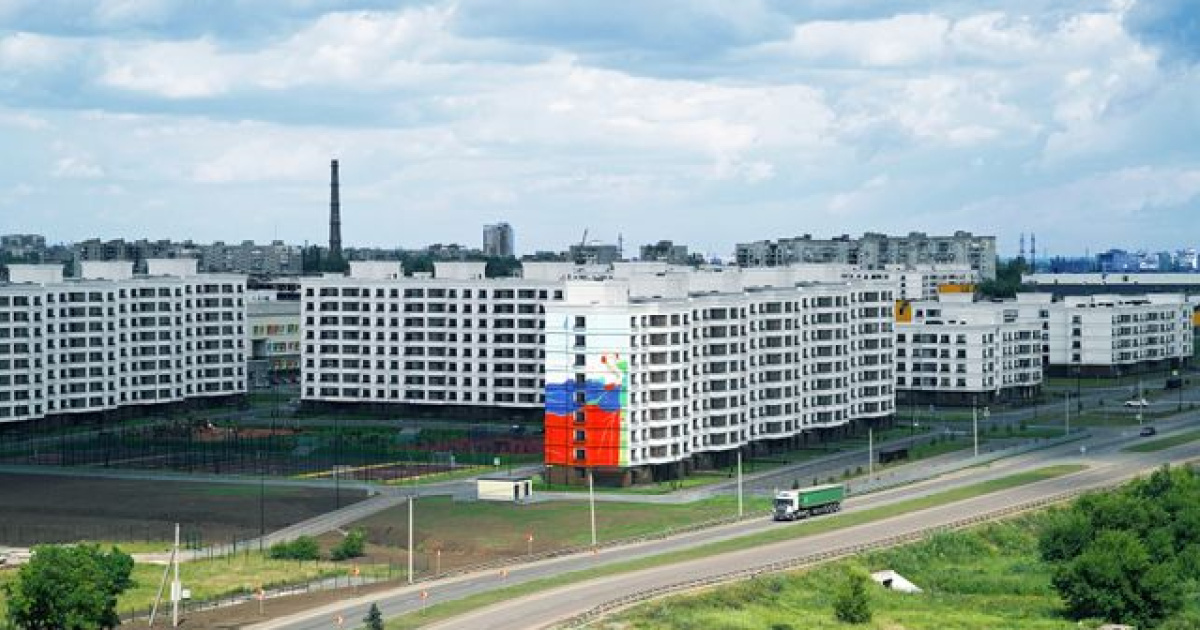
Are the shellings of Donetsk a factor directly affecting real estate prices in the city? The answer is unequivocal: no.
It might seem that it is very easy to buy an apartment only to lose it due to a shell striking the building. After all, there are no safe areas left in Donetsk. However, even such extreme living conditions have not impacted the real estate market in the city. On the contrary, they appear to have driven prices up to levels comparable to those in moscow. What explains this phenomenon?
First, high real estate prices are tied to high salaries. Of course, this doesn’t apply to the average Donetsk resident, whose salary ranges from 30,000 to 60,000 rubles.
The real estate market in Donetsk today is geared toward the salaries of military personnel. According to the website GorodRabot.ru, the average salary of a serviceman in Donetsk for 2024 is 204,000 rubles per month, which is approximately $2,000. This figure does not represent the highest officer ranks. Furthermore, many are currently receiving compensation payments for injuries. For this category of the population, purchasing an apartment or house is not difficult.
Additionally, there is significant demand from visiting workers from russian regions who wish to move their families to Donetsk. Their salaries are also notably higher than those of local Donetsk residents.
A substantial factor contributing to the heightened demand for real estate is the government program offering preferential mortgage loans for housing purchases. Since March of this year, all russian banks began issuing preferential loans at a 2% interest rate for purchasing housing in the so-called "new regions" – the occupied territories of the Donetsk, Luhansk, Zaporizhzhia, and Kherson oblasts. According to Donetsk realtors, this preferential mortgage program will run until April 2025.
This explains the current surge in the real estate market.
However, not everyone is eligible for these preferential loans. Priority is given to government employees and participants in the "special military operation", as well as residents of the Belgorod and Kursk oblasts who lost their homes due to hostilities.
Initially, the preferential mortgage program was intended to encourage investment in new construction. However, since construction in the occupied territories is not particularly active, the program was extended to include the purchase of housing on the secondary market.
Now, let's talk about prices. Naturally, the most expensive apartments are in new buildings, specifically residential complexes constructed between 2010 and 2014. Prices there start at $100,000 and go up. In rubles, that's approximately 10.2 million. In a typical high-rise, you can buy an apartment for $50,000.
On the secondary market, an apartment can be purchased for 3 million rubles ($22,000). However, this will be a "grandma's-style option".
Cheaper options can be found in areas where it’s often dangerous and explosions can be heard. These include the Kuibyshevskyi, Kyivskyi, Kirovskyi, and Petrovskyi districts. In addition to frequent shelling, these areas face a critical water supply situation – worse than in other parts of Donetsk.
The Proletarskyi and Budionnivskyi districts are considered relatively quiet regarding shelling, so real estate prices there are higher. A one-room apartment of 18 square meters with minor repairs will cost about $30,000.
There’s an interesting situation with property owners. If you call any listing, real estate agents typically answer the phone. Naturally, they charge hefty fees for their services – roughly half the property’s price. Buying or renting directly from the owner is almost impossible.
This is explained by the fact that many apartments are sold via power of attorney. This is not only because the property owners are outside Donetsk. Often, owners avoid direct contact with buyers because they are simply afraid. Most of the buyers are military personnel, who have a reputation among locals for not being the most honest or conscientious individuals.
By Liusia Molchanova, Donetsk, for OstroV




